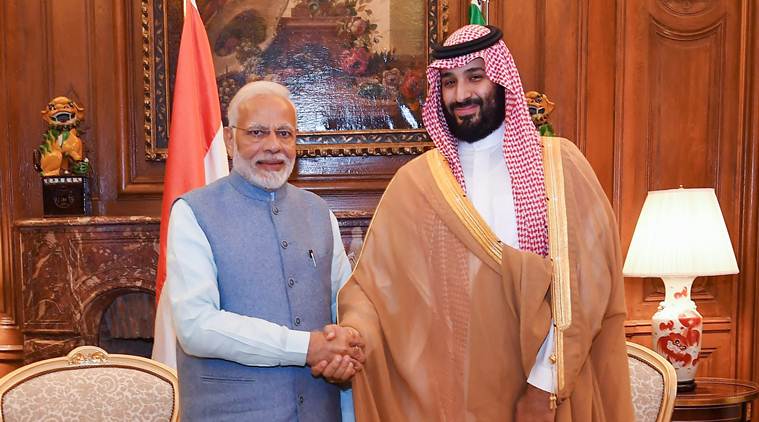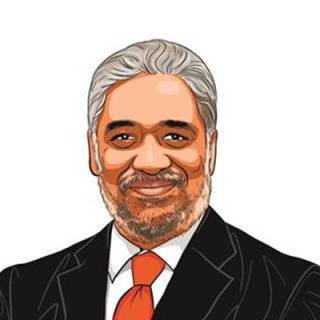Raja Mandala: Nationalism comes to Saudi Arabia
Prince Salman’s downplaying of pan-Islamism offers New Delhi an opportunity to forge a strategic partnership with Riyadh.

When we think of nationalism in the Middle East, we recall “Arab nationalism” that animated Indian engagement with the region over the last several decades. But as Delhi prepares to host the Saudi Crown Prince Mohammed bin Salman this week, India must come to terms with an unfamiliar idea — “nationalism in Arabia”.
Promoting nationalism and downplaying pan-Arabism and pan-Islamism is at the very heart of Crown Prince Salman’s effort to reorient Saudi Arabia’s internal and external policies. And he is not the only one. Others, especially the United Arab Emirates, are also trying to construct a national identity to cope with the turbulence in the Middle East.
The kingdoms of the Arabian Peninsula did not have to fight for their “national” independence from colonial rulers. Nor did they inherit a clear and continuous territorial entity on which to found a nation. The Arabian monarchies, naturally, chose to rely on tribal and religious identities for their political legitimacy. The Arabian monarchies were also quite happy to go with the regional flow on supra-national politics. Today, as the Gulf monarchies review the growing threat of transcendental ethnic and religious movements, they are turning to nationalism as an insurance.
The rulers of the Arabian peninsula are also acknowledging that the construction of coherent communities out of their societies — overflowing with expatriates of different faiths and denominations — will need more than shared religion, sect, tribe or ethnicity. That is where “nationalism in Arabia” comes in. It is very different from “Arab nationalism”, which was supposed to transcend national boundaries. Nationalism in Arabia is about defining the interests of separate sovereign states. In the past, Arab nationalism was seen, especially in India, as a progressive force countering conservative religious impulses. Today “nationalism in Arabia” has risen out of the debris of Arab unity and Islamic solidarity. That the old illusions are irrelevant is reflected in the fact that the Arab League and the Organisation of Islamic Cooperation are both in a shambles.
For newly-independent India, “Arab nationalism” had a special appeal. It resonated with the ideas of anti-imperialism as well as the slogans of state socialism and non-alignment. The issues that dominated the region — the conflict between the Arabs and Israel, the Palestinian struggle for nationhood and the joint initiatives by the Arabs — reinforced India’s decision to frame the politics of the region in those terms.
As Arab nationalism went on the backfoot after the stinging defeat suffered by the Arabs in the 1967 war with Israel, the Saudis took the lead in launching the Organisation of Islamic Conference in 1969.










.png)




























No hay comentarios:
Publicar un comentario